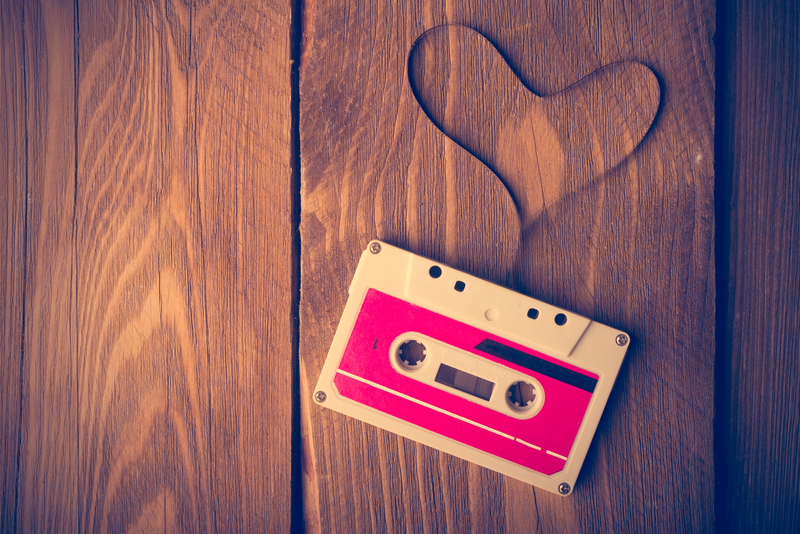Give Your Old Cookware a Second Life Through Recycling
Embracing Sustainable Living: Why Recycle Your Old Cookware?
In today's eco-conscious world, finding responsible solutions for household waste is more vital than ever. Recycling old cookware provides a sustainable alternative to simply throwing it in the trash. Instead of letting unwanted pots and pans languish in landfills, you can give your cookware a second life through creative recycling and upcycling methods.
In this comprehensive guide, we will explore why you should recycle cookware, how to recycle old cookware properly, and innovative ideas for repurposing your unwanted kitchenware. Whether you're an environmental enthusiast or just keen to declutter, you'll discover inspiring and practical ways to rediscover the value of your old culinary tools.

The Environmental Impact of Discarded Cookware
Each year, millions of pounds of cookware are discarded worldwide. Much of this ends up in landfills, where it can take decades or even centuries to break down. Metal pots, nonstick pans, and other types of old cookware often contain materials that can be recycled or upcycled, significantly reducing their environmental footprint.
- Waste Reduction: Recycling gives cookware new life, diverting it from landfills.
- Resource Conservation: Recycled metals require less energy to process than virgin materials, conserving natural resources.
- Pollution Reduction: Proper disposal lowers the risk of soil and water contamination caused by some nonstick coatings and metals.
By making the conscious choice to recycle old kitchenware, you'll contribute to a healthier planet for future generations. But, how do you get started?
Understanding Cookware Materials and Their Recyclability
Before tossing any cookware out, it's crucial to identify what it's made of. Different materials require different approaches for recycling. Let's examine the most common types:
Stainless Steel and Aluminum Cookware
- Stainless Steel: Highly recyclable! Old stainless steel pots, pans, lids, and utensils can be taken to local metal recycling centers or scrap dealers.
- Aluminum: Equally recyclable, and aluminum can be remelted and reused almost indefinitely, making it a popular choice for recycling.
Nonstick and Teflon-Coated Pans
While nonstick pans are also often made of aluminum or steel, their Teflon or other coatings present recycling challenges. Some facilities don't accept Teflon-coated cookware because the coating must be removed before processing. Check with local recycling providers to see if they accept these materials and if they have specific preparation requirements.
Copper Cookware
Copper is valuable and highly sought-after at scrap yards. Removing wooden or plastic handles (if possible) can increase your pan's value and ease the recycling process.
Cast Iron
Old cast iron cookware is surprisingly easy to recycle, but consider seasoning or refurbishing it for resale or donation since it can last for decades with proper care.
How to Prepare Old Cookware for Recycling
Proper preparation makes recycling your cookware easier and more efficient for both you and recycling facilities. Here's how to do it:
- Remove Non-Metal Parts: Take off plastic handles, glass lids, or rubber gaskets. These rarely qualify for metal recycling programs.
- Clean Thoroughly: Wash away grease and food residue. Most recycling centers require items to be clean to avoid contamination.
- Disassemble When Possible: Separate mixed-material cookware (e.g., metal pots with wooden handles or silicone lids) into their recyclable components.
- Check Local Guidelines: Confirm with your municipality or local recycling center about their specific requirements for recycling cookware.
Where to Recycle Old Cookware
Not all recycling centers accept all types of cookware, so it's important to know where to take yours. Here are popular options for recycling old pans and pots:
- Scrap Yards: Excellent for metal cookware. Scrap dealers can usually weigh your items and pay you a small amount for recyclable metals.
- Municipal Recycling Centers: Many municipal waste facilities accept metal goods, including pots, pans, and baking sheets.
- Curbside Pick-Up: Some communities allow metal cookware in curbside recycling bins, but consult your local guidelines first.
- Household Hazardous Waste Events: Great for nonstick or Teflon-coated pans that might contain chemical coatings not safe for standard recycling.
- Retail Take-Back Programs: Some retailers, such as specialty kitchenware stores, have programs for recycling or donating old cookware when you purchase new pieces.
Give Your Cookware a Second Life Through Upcycling
If your cookware is not suitable for recycling or you want to get creative, upcycle your old cookware into something new and practical! Giving new life to old kitchenware can be a fun, sustainable, and fulfilling project.
DIY Ideas for Repurposing Old Cookware
- Garden Planters: Old pots and pans make unique plant containers. Just add some drainage holes and fill them with soil for quirky, rustic planters.
- Wall Decor: Hang vintage skillets, colanders, or mixing bowls as decorative elements in your kitchen or patio.
- Storage Solutions: Use large, deep cookware to organize tools, craft supplies, or office materials.
- Bird Feeders and Bird Baths: Hang colanders or shallow pans to create charming garden fixtures for birds.
- Candle Holders: Small saucepans or ramekins can be transformed into stylish candleholders with a touch of paint or polish.
- Clock Faces: Mount clock mechanisms through the center of old frying pans or lids for a sturdy DIY wall clock.
Choose upcycling projects that reflect your personal style and household needs. Not only will you reduce waste, but you'll also create conversation-worthy additions to your home or garden.
Consider Donation: Another Route for a Second Life
If your old cookware is still serviceable, donation is an excellent option. Charity thrift stores, shelters, food pantries, and community kitchens often welcome cookware donations. By giving your items a second life through donation, you're supporting local communities while preventing waste.
Before donating, clean your cookware thoroughly and ensure there are no sharp edges or hazardous wear (like peeling nonstick coating). Group sets together or label items for easier sorting by recipients.
Tips for Extending the Life of Your Cookware
To prolong the usefulness of your cookware and minimize future waste, follow these maintenance tips:
- Hand Wash When Possible: Dishwashers can cause premature wear and tear on certain materials.
- Avoid Metal Utensils: Prevent scratches on nonstick and delicate surfaces, extending their lifespan.
- Season Cast Iron: Regular seasoning prevents rust and keeps cast iron in top condition for decades.
- Follow Manufacturer's Instructions: Mind temperature and care recommendations to avoid warping, peeling, or cracking.
Frequently Asked Questions About Recycling Old Cookware
Can I Recycle Nonstick Pans?
Many nonstick pans cannot go directly into regular metal recycling because of their chemical coatings. However, some hazardous waste collection centers and specialized recyclers accept them. Always check local guidelines first.
Do I Need to Remove Handles and Lids?
Yes, ideally. Metal-only items are preferred by recycling facilities. Remove plastic, silicone, or wooden components if you can, or repurpose them in other DIY projects.
Can I Make Money Recycling Old Cookware?
Scrap yards pay for metals like aluminum and copper by weight. It may not be much per pan, but it's a great way to motivate regular recycling.
What If My Cookware Is Still Usable?
Consider giving your cookware a second life through donation to charity shops or community kitchens. Your lightly used pots and pans might be cherished by someone in need.

The Bottom Line: A Greener Kitchen, One Pan at a Time
By choosing to give your old cookware a second life through recycling or upcycling, you'll contribute to a cleaner environment and a sustainable future. Not only will you keep waste out of landfills, but you'll also discover creative ways to repurpose what was once considered trash.
- Recycle responsibly: Prepare and sort your cookware according to material and local regulations.
- Upcycle creatively: Turn old pots and pans into planters, decor, or organizers.
- Donate generously: Pass along serviceable cookware to those who need it.
- Maintain mindfully: Care for your current kitchenware to prolong its lifespan and reduce waste.
Start today by opening your cabinets, gathering old, unused, or worn-out cookware, and researching local recycling and donation options. Each recycled pan is one less piece of waste in our landfills and one more step toward an eco-friendly lifestyle.
Resources for More Information
- Earth911.com: Find recycling facilities near you by cookware material.
- Call2Recycle: Offers guidelines for recycling household goods and kitchenware.
- Scrap Metal Recycling Centers: Contact your local center for details on cookware acceptance.
- Community Donation Centers: Your local branch of Goodwill, Salvation Army, or Habitat for Humanity Restore.
Ready to give your cookware a new purpose? With a little effort and creativity, you can reduce waste, conserve resources, and inspire others to join the movement toward sustainable kitchens. Start recycling your old cookware today and cook up a brighter, greener tomorrow!